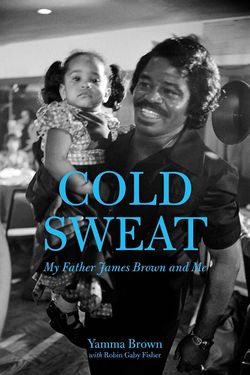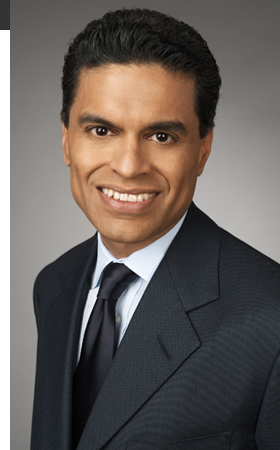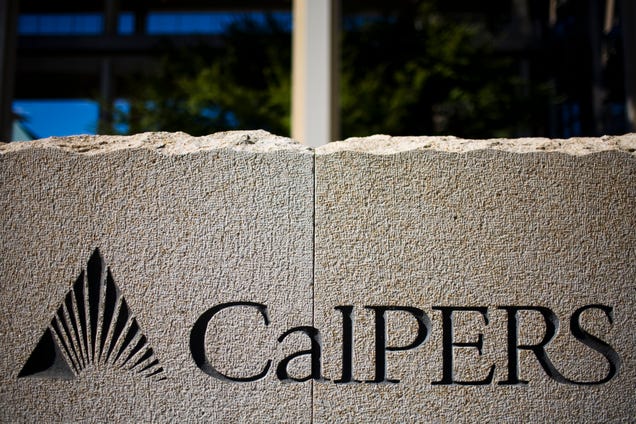Getty Images
"The Republican Party’s path to Senate control runs straight through the South, leaving Democrats fighting not to be wiped out completely in the region. 'You’ve got a number of the key races in the South this year,' said Emory University Professor
Alan Abramowitz, who’s studied the region’s political history extensively. Sens.
Kay Hagan (D-N.C.),
Mark Pryor (D-Ark.) and
Mary Landrieu (D-La.) are all in tough races, as is Senate Minority Leader
Mitch McConnell (R-Ky.), and both parties are contesting the open seat in Georgia. If Republicans can sweep the South, they’ve already won a Senate majority. The GOP needs to net six seats and is a near-lock to pick up open seats in Montana, South Dakota and West Virginia, leaving it three seats shy of a majority. But if Democrats can win two or more Southern seats, the GOP’s path to the majority narrows considerably, as it would have to pick off Alaska and Iowa, New Hampshire, Colorado or another swing state to reach the majority. The region has been trending away from Democrats for decades, as conservative white voters abandon the party that once dominated the South. But North Carolina, Georgia and other areas with major urban centers have the potential to swing back to the Democratic Party thanks to big growth in those states’ nonwhite populations and an influx of white voters from less conservative parts of the country. Arguing history is on their side, Republicans are predicting extensive victories in the region. 'We feel we’re in a position to sweep the South,' said National Republican Senatorial Committee (NRSC) spokeswoman
Brook Hougesen. 'Right now each of the Democrats are spending heavily to tread water, their numbers aren’t moving at all. Undecided voters are likely to move to Republican candidates.' Democrats say they have the right kind of candidates to win in the tough region, banking on their centrist incumbents with long family history and state ties to bail them out.
'There’s no question the path to the majority runs through the South, where Democratic candidates are running smarter campaigns with better candidates who are out-raising and outworking their Republican opponents,' said Democratic Senatorial Campaign Committee spokesman
Justin Barasky. Democrats are feeling best about Hagan’s chances." (
TheHill)

"The first time I laid eyes on
Joan Rivers on a red carpet, she was
wearing a muumuu and teased hair like my grandmother in Miami. I was covering the 1997 Oscars for
Women's Wear Daily and stationed next to the E! camera crew -- and Joan, well, she was puking, it seemed. On camera.
I had just spotted what became one of the all-time most revered Oscar looks:
Nicole Kidman's chartreuse chinoiserie-embroidered Dior gown. '
John [
Galliano] made it for me, and I love it. I don't know if people will get it,' Nicole told me. "But if they don't, well, maybe they should."
WWD gave her dress the next day's cover, pronouncing Galliano's ascension to
red-carpet king. Up until this point, awards shows were predictable affairs -- parades of stately Armanis and sexy Versaces. Kidman brought the crackling excitement of couture, but Rivers wasn't having it. Knowing the dress would be controversial (it was on almost every top 10 or bottom 10 list, sometimes both), she yelled in her
most obnoxious whiny New York Jewish accent: 'Nicole! Come tell me why you wore such an ugly color!' Whether the actress heard or not, she sailed by, leaving Joan screaming, 'I hate that color! You are making me puke!' And then Joan mimed puking noises. Graphically. Some of the other reporters were hysterical; some, cringing. This was exactly the response Rivers was going for. But in the fashion world, this kind of radical ambivalence was unheard of. 'If this is her idea of a fashion review,' I recall thinking, 'she's going nowhere in the fashion world.' Oh, how wrong I was. Sure, elitist journalists found her crass and turned up their sculpted noses when Rivers and daughter
Melissa started E! red-carpet coverage at the 1994 Golden Globes. They
knew nothing about fashion. All they did was bicker and hurl (literally, sometimes) insults. It didn't even seem like they
meant their sartorial snark. And you weren't going to find Joan or Melissa in Valentino, Dior or Armani.While I interviewed her for a notorious
W magazine piece in 1999 -- as it was becoming clear that ratings, not runways, were determining who got the last wardrobe word -- Rivers admitted she knew next to nothing about fashion. 'No, I don't go to fashion shows,' she said proudly. 'I couldn't tell you about
Karl [
Lagerfeld]'s last season. But I
do know what I like, and that's what fashion is really about. I don't care what those snobby people think. I'm laughing all the way to the bank -- at least I'm laughing! They never crack a smile. They all have sticks up their tiny asses!' Rather than try to take down Rivers in print myself, I called upon
Amy Spindler, the now-late legendary fashion critic of
The New York Times. Spindler dismissed the comic's commentary as the worst trash and became Rivers' favorite new target on her radio show: 'Why should I be the only one to say we don't like the fashion section of the
Times magazine? I want to see if she can wear a pink thing with a safety pin, which she featured last week. I have a feeling she's one of those all-in-black ladies.' Spindler shot back: '[Rivers] told everyone she did windows at B. Altman, so I could ask her if she used Windex when she did the windows.' But what the high fashion world of the late '90s failed to grasp was the beginning of its sinking relevance, as bloggers were ascending and fashion was going the way of armchair home critics." (
THR)

"
It's no secret that James Brown had a dark side. This summer's biopic Get On Up left out many of the weird, uncomfortable, and simply violent incidents that Brown instituted or participated in. But it wasn't until now that we've been able to get a look at just how frightening the singer could be. Earlier this month, his daughter Yamma Brown published a memoir titled Cold Sweat: My Father James Brown and Me (co-written with Robin Gaby Fisher) that details her life growing up with her often volatile dad. In the excerpt below, Yamma flashes back to a moment when Brown beat her mother in front of her and her sister, then writes about how that violent legacy stayed with her into adulthood.''The beatings always begin the same way, with the same terrible sounds. My parents are in their bedroom, behind closed doors. First comes the boom of my father’s voice. 'Dee Dee! Goddamn it, Dee Dee!' Then I hear what sounds like thunder rolling through the house. That’s Mom hitting the wall. I wait for her to scream, but she doesn’t. She whimpers. She must have learned long ago that screaming incites him. I swear that during those fights, I could feel the whole house shake with my father’s crazy rage. Whenever he’d start, my sister Deanna and I would run for cover, usually in a closet or under our beds, and cry quietly into our cupped hands. I shook a lot as a kid. My hands. My face. My knees. A 5-year-old with tremors. As my grandma used to say, 'Ain’t that just the saddest thing?' Sometimes the fights lasted only minutes. Sometimes longer. The monster would appear, wreaking havoc on our lives, and then the rumbling would stop and we’d hear our mother’s muffled cries. After that, the house would go completely quiet. The sound of the silence was the worst because that’s when Deanna and I would wonder if our mother were alive or dead and if we would be next. My father never beat us, but sometimes I think a beating would have been less hurtful than hearing the sounds of him using my mother as his punching bag. " (
NYMag)
 |
| "Smiling Through the Apocalypse" at Lincoln Plaza Cinema, playing today, Sept 17th and Thursday |
"
Right now over at the Lincoln Plaza Cinemas, they’re showing 'Smiling Through the Apocalypse', a biography/documentary by
Tom Hayes about his father the late
Harold Hayes, the editor of
Esquire magazine in the 1960s.
Esquire was one of the most popular, most influential, most talked about magazines of the time, all under the direction of Harold Hayes. The film has recollections of
Norman Mailer, Tom Wolfe, James Baldwin, William F. Buckley, Gore Vidal, Gay Talese. I don’t really know the story about Mr. Hayes, his life or his personality although I knew of his days at
Esqiure, because it was what we now call 'cutting edge,' a must read, and it was because of Harold Hayes.What drew my attention to Tom Hayes’ film was my own very brief but important experience with Harold Hayes back in Los Angeles in the early 1980s when I was out there struggling without any success to make a career for myself as a writer. It was a very difficult time for me emotionally. I’d been out there for two years and making little headway, and even littler money. I had a terrible job working as an assistant to a film producer named
Lester Persky who had very little going on in terms of production and was often in New York. Finally I managed to get a couple of writing assignments – helping someone put together a chapter and outline for a memoir, and writing a chapter and outline for another writer who had been contracted to write a book about Elvis Presley.Nevertheless both assignments were temporary and I was at my wit’s end. My only real writing was my daily journals much of which was an ongoing litany of complaints and inconsequential injustices that afflict the struggling artist, would be or otherwise. Aside from my personal drama, one night after a day at the fatigue-inducing assignments for other people’s projects, I sat at my desk and started going through my journal pages, looking for something that I could maybe turn into a story, or a script,
something that was mine. Aside from my mental dramatics I also wrote what I continue to do on these pages: about the day, what I saw, what I heard, where I was.
And it happened. There was an entry, made in late 1980 about
Truman Capote who had come to Los Angeles to meet with
Lester Persky about a story he had originally written for
Interview Magazine called 'Hand-carved Coffins' that he had just published in a book of his work called 'Music For Chameleons.' Lester was buying the film rights for $500,000. Truman was a major author and celebrity whose reputation at that point had been touched with notoriety. This was big time. " (
NYSD)























 *3 vacancies in House: 2 Safe D, 1 Safe R
*3 vacancies in House: 2 Safe D, 1 Safe R








